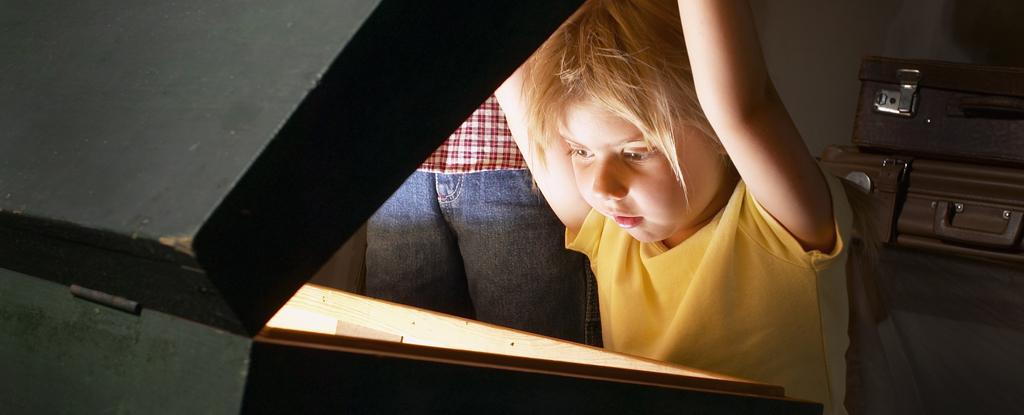Products You May Like
Compared to apes, human children are more likely to open a mystery ‘box’ over one with known contents, a new study finds. This suggests that one thing that makes us unique as a species might be our innate sense of curiosity.
Children “explored the uncertain options before the alternatives were presented, showing a higher degree of curiosity than the great apes,” psychologist Alejandro Sánchez-Amaro from the Max Planck Institute for Evolutionary Anthropology in Germany and cognitive scientist Federico Rossano from the University of California San Diego write in their published paper.
Groups of 15 to 29 captive apes – a mix of chimps, gorillas, and bonobos – were tested using opaque and transparent upside-down cups containing juicy grape treats.
After some trials to familiarize them with the objects, the primates were presented with combinations such as a clear cup with one grape alongside an opaque cup that, unbeknownst to them, had more grapes. The apes then had to choose a cup and receive the prize within.
The researchers repeated these experiments with groups of 24 to 27 children between 3 and 5 years old, using stickers as the reward. In the final trial of the experiment, the children are not told of the prize to make their experience more exploratory, like the apes’.
From the outset, in the first phase of the studies (before they had more information), kids were more willing to choose the uncertain option than the clear cup, where the reward was apparent: 52 and 85 percent of the human children chose the opaque cup at least once.
Still, not all of the children were willing to take the riskier option, less so when they weren’t shown their sticker prize.
“Overall, internal motivations strongly influenced children’s decision,” the researchers conclude, as the children wanted to investigate the opaque cups even when they didn’t know of a possible greater reward.
While the apes were more reluctant to explore the mystery cups from the start, once they had been given a hint of the greater hidden prize, they would more often choose the opaque cups. The apes were maximizing their rewards.
However, the human children continued to mix things up across the different trials, suggesting another type of motivation compelled them. The researchers believe this was curiosity.
Curiosity is a powerful tool for learning. Humans are known for sacrificing resources for information, even if that information seems to have no obvious external benefit.
Some researchers have even suggested high levels of curiosity may have helped facilitate humanity’s expansion out of Africa.
So our tendency to pry where we should not, open the box that lets loose all the troubles in the world, and eat forbidden fruit may be an intrinsic part of what makes us human.
This research was published in PLOS ONE.
